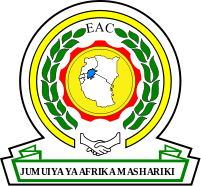South Sudan to pay $8m to East African Community
July 4, 2016 (JUBA) – South Sudan will pay nearly $8 million United States dollars as part of its contribution for the membership to the East African Community (EAC) despite the deteriorating economic crisis, an official revealed on Monday.
 Presidential Advisor on Economic Affairs, Agrey Tisa Sabuni, said the government will meet its new regional commitment despite the economic turmoil in the world’s youngest nation.
Presidential Advisor on Economic Affairs, Agrey Tisa Sabuni, said the government will meet its new regional commitment despite the economic turmoil in the world’s youngest nation.
“This amount of $8 million for the EAC has to be factored in the budget so that South Sudan will be able to contribute its share to the secretariat. Once that amount goes to the secretariat, it will be spent on many things like the court of justice, the assembly, the secretariat, and so forth,” said Sabuni, an ex-minister of finance between 2013 and 2015.
South Sudan was admitted to the six-member nations last year and the parliament in Juba approved the accession in May 2016.
Due to failure to form a transitional national legislative assembly (TNLA) as required by the peace agreement, South Sudan’s 2016/2017 fiscal year budget is not yet approved by the legislature. The new financial year starts on 1 July.
Sabuni said the EAC’s 2016/2017 budget is about $100 million. The regional assembly, the East African Community Legislative Assembly tabled and passed a budget of Financial Year 2016/2017 totalling $101,374,589, last week.
Sabuni said an amount of $47,565,377 will be contributed by all the states and the remaining amount of over $53 million will be generated from donations from development partners, and other miscellaneous revenue sources of the economic bloc, including the General Reserve Fund to facilitate the activities and projects of the secretariat throughout the financial year.
“So the budget that will be contributed by the six partner states is $47 million. That amount must be equally contributed by the member states, and since the partner states are now six, including South Sudan, its means this amount will be divided by six. It comes to $7.8m, approximately 8 million,” he said.
South Sudan is experiencing economic crisis caused by lowering global price of oil, 21 months of conflict that led to reduction in daily oil output and dependence on oil revenue.
Sabuni did not however elaborate on how the government will meet the extra expenditure.
(ST)
